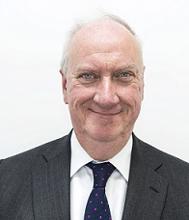On his career, why he’s now heading up this new challenger brand and how it will play its part in the market
Andrew can you tell us a bit about your career in the legal sector?
I joined Davies Wallis Foyster (later rebadged as “DWF”) as it was known in June 1990. I recall at my interview that the then senior partner, Jim Davies, commenting: “Your CV is not very hot from a commercial point of view”. I think if he had his way then I would not have been hired at all! Well, I was hired and I got my head down and proved myself. I became a salaried partner in 1992 and an equity partner in 1995. By 1998 I had become the managing partner of DWF’s Manchester office and was a member of the new board which was created to manage the firm.
How were the seeds sown for the launch of Leonard Curtis Legal?
In 1995 a new insolvency and restructuring practice had been created within DTE - the well-established and much respected accountancy firm. It was led by John Titley and Andrew Poxon. We started to work together and they became good supporters of me and the rest of the team at DWF. While we worked together throughout the remainder of the nineties and into the noughties, we were both taken up with our own development plans. DWF grew to become a national law firm and what was the DTE insolvency practice joined forces with London based insolvency firm Leonard Curtis. In due course this led to the creation of a national firm of restructuring specialists, now known as Leonard Curtis Business Solutions Group (LCBSG).
2014 was a turning point for you. What happened?
In 2014, DWF revamped its leadership team and I was presented with the option to retire from the firm by agreement. I started to talk to my clients and contacts; one of those was John Titley. I met him one evening in one of Manchester’s oldest pubs, The Rising Sun, for a beer. On telling him about my retirement plans, his immediate reaction was:“Why don’t you come and work for us?”
What was your initial reactio
Well, I thought about it and then met with the LCBSG senior management team. As we talked, I started to understand what a massive opportunity this was.
What excited you most?
The realisation that we could shape the vision for a new and different kind of law firm. For years LCBSG had been working on a strategy which developed the historic business from a traditional firm of insolvency practitioners into a group of companies which offered a range of services that complemented each other within a multi-disciplinary framework. We could all see how the introduction of legal services into this matrix could become a very powerful offering. So, we got on with some detailed planning, applied to the SRA for an ABS Licence and as from the 5th September, Leonard Curtis Legal Limited was authorised to offer legal services.
How did you go about differentiating yourselves?
We thought about our services and decided that in many ways we needed to mirror the approach that was being taken by LCBSG via its Lifecycle network for accountants, namely: A cradle to grave selection of services to the SME sector including:
~ Advice on start -ups and the most effective way to structure a new business
~ Support on the financing of a business
~ Advice on leases and tenancy agreements
~ Support on employment law issues
~ Advice on credit control and debt recovery action
~ Dispute resolution
~ Advice on sales and exit strategy for owner managers
How closely will you be working with Leonard Curtis?
We are developing a stand-alone law firm which is majority owned by Leonard Curtis Business Solutions Group. However, we are maintaining our independence as a firm of solicitors so we have the ability to call upon a wide range of specialist legal skills ranging from advice on cash flow management, funding options and the provision of investment from business angels and private equity. This is a much wider range of solutions than those which I had previously experienced in private practice. We also intend to work with the existing accountancy client base of LCBSG. We have set up our head office in Manchester and our intention is to roll out our services right across the UK via the business’ network of 12 offices.
What’s the ultimate aim?
The aim is to become a market leader in providing business solutions to the SME sector, creating solutions to businesses, working in close contact with accountants and breaking down the traditional barriers between the professions.
How has the market reacted?
Initial feedback from our accountancy contacts suggests that such an approach will be very well received by them and their clients. Our objective is to become a “challenger brand” and by using the ABS structure we will create a range of added value services for SMEs which improve their businesses.
Has there been much resistance from other law firms?
Not really as we do not seek to enter the existing market for legal services. The UK is fortunate in having many first rate law firms which have great expertise and provide excellent value for clients. At LCBSG we enjoy excellent relations with some of the best firms in the UK so we are looking to continue that by working with them to create the most effective solution for each client by drawing on the firm’s expertise as and when required.
What are the pillars of the business?
We have many but it’s probably easiest if I list the top 10:
1. We use over 30 years of experience in not just giving advice to clients but using our own experience of running a business.
2. We have a wide experience of the major legal issues facing a SME through our experience in dealing with the restructuring of companies.
3. We work with qualified accountants who understand the numbers better than we lawyers.
4. We have a “captive client” in LCBSG which provides our in-house team with legal work. This takes the pressure away from having to bill every chargeable hour. We can take time out to add value when required.
5. We have a wide range of experts in our legal team who can provide a wide range of solutions to client problems.
6. We have access to many of the UK top 30 law firms which can provide niche expertise where we are not able to provide the solution to the clients’ issue.
7. We offer a range of fixed fee services which provide quality advice service with the use of lawyers trained with national law firms.
8. We operate on a low cost by using the LCBSG national footprint of 12 offices to give national reach.
9. We are “light on our feet”. We provide a pool of first class lawyers who are attracted by the proposition of offering high quality law services with the use of IT to deliver a unique and value added service which is not enslaved by the adherence to the chargeable hour and the recovery rate per lawyer.
10. We have all joined the firm because we were attracted by doing something different that challenged the status quo.












